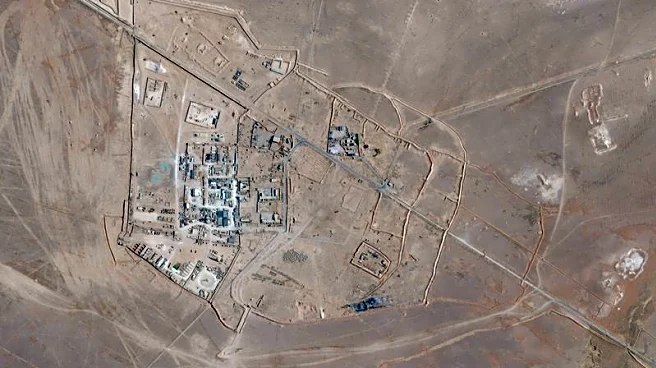What's Happening?
The Nobel Prize in Physiology or Medicine for 2025 has been awarded to Shimon Sakaguchi from Japan and U.S. researchers Mary Brunkow and Fred Ramsdell. Their groundbreaking research has elucidated how the immune system can attack infections without harming the body's own cells. This discovery centers on regulatory T-cells, which act as 'security guards' to prevent the immune system from mistakenly attacking the body's tissues. The research has significant implications for understanding autoimmune diseases and cancer, as it explains why the immune system does not always develop serious autoimmune conditions. The Nobel Committee highlighted the importance of these findings in laying the foundation for new research fields and treatment developments.
Why It's Important?
The awarded research is pivotal in advancing medical science, particularly in the treatment of autoimmune diseases and cancer. By understanding the role of regulatory T-cells, scientists can develop therapies that either enhance or suppress these cells, depending on the condition. For autoimmune diseases like type-1 diabetes and multiple sclerosis, boosting regulatory T-cells could prevent the immune system from attacking the body. Conversely, in cancer treatment, reducing regulatory T-cells might enable the immune system to better target and destroy tumors. This dual approach could revolutionize treatment strategies, offering hope for more effective management of these conditions.
What's Next?
The discoveries by Sakaguchi, Brunkow, and Ramsdell are expected to spur further research into the manipulation of regulatory T-cells. Clinical trials are likely to explore therapies that adjust the levels of these cells to treat various diseases. In cancer, research will focus on reducing regulatory T-cells to enhance the body's ability to fight tumors. For autoimmune diseases, increasing these cells could mitigate the immune system's attack on the body. Additionally, this research could influence organ transplant procedures by reducing the risk of rejection through regulatory T-cell modulation.
Beyond the Headlines
The implications of this research extend beyond immediate medical applications. Ethically, the ability to manipulate the immune system raises questions about long-term effects and potential misuse. Culturally, these advancements could shift public perception of autoimmune diseases and cancer, fostering greater understanding and reducing stigma. Legally, new treatments may prompt regulatory changes to accommodate innovative therapies. The research also highlights the importance of international collaboration in scientific advancements, as demonstrated by the joint efforts of Japanese and American scientists.










